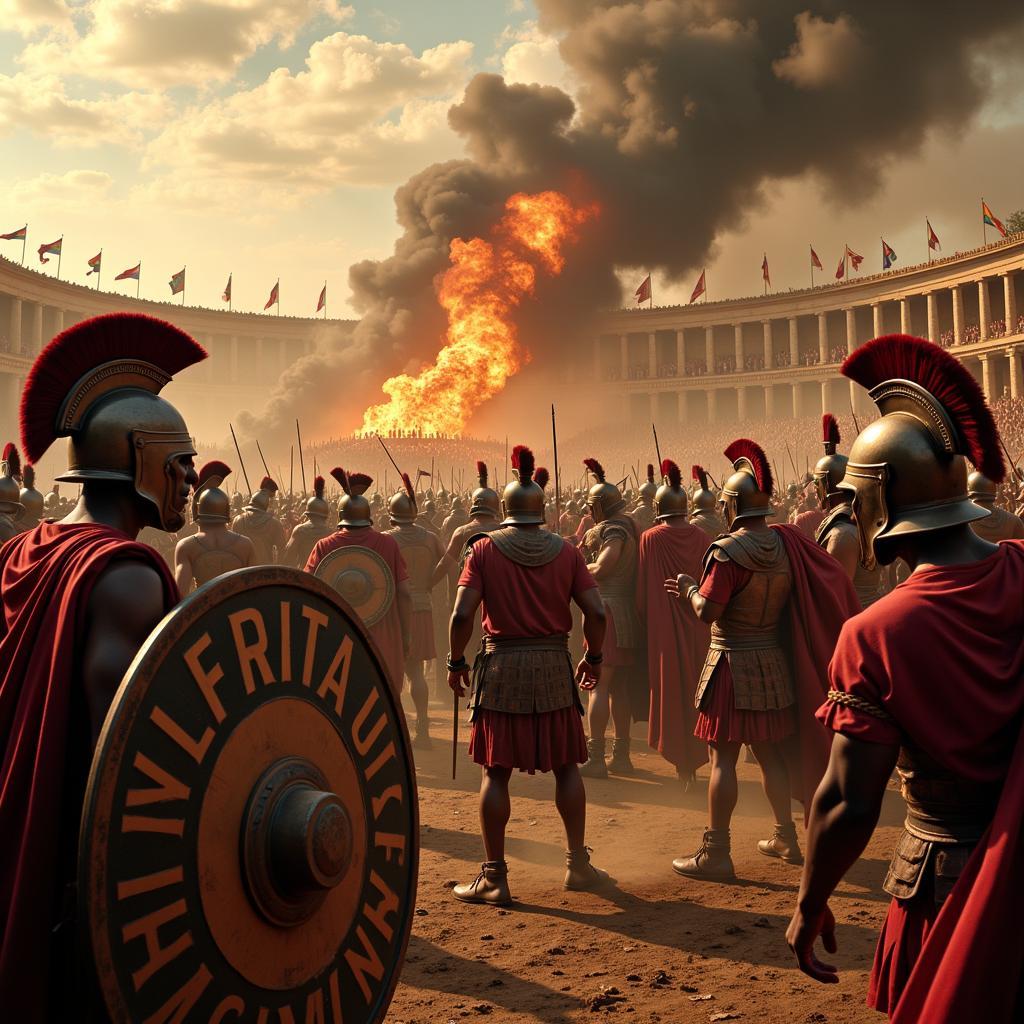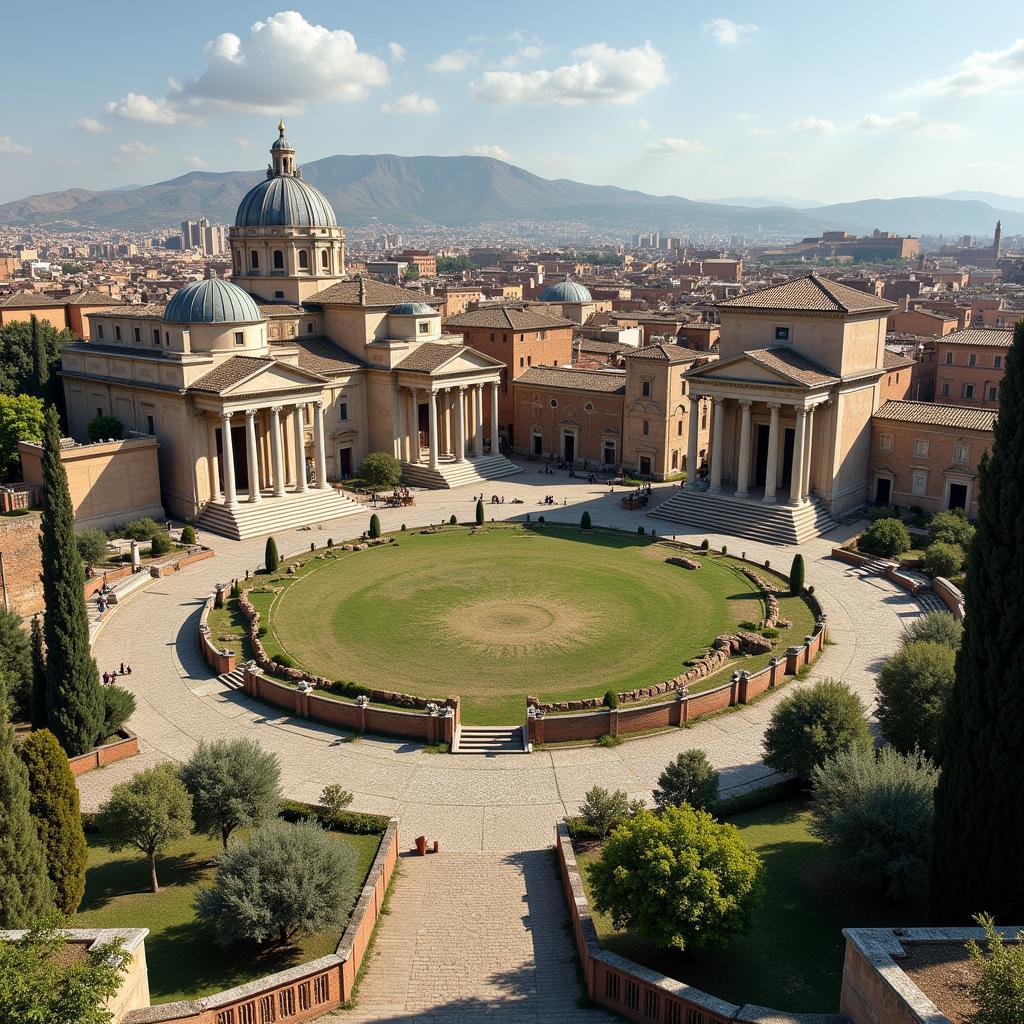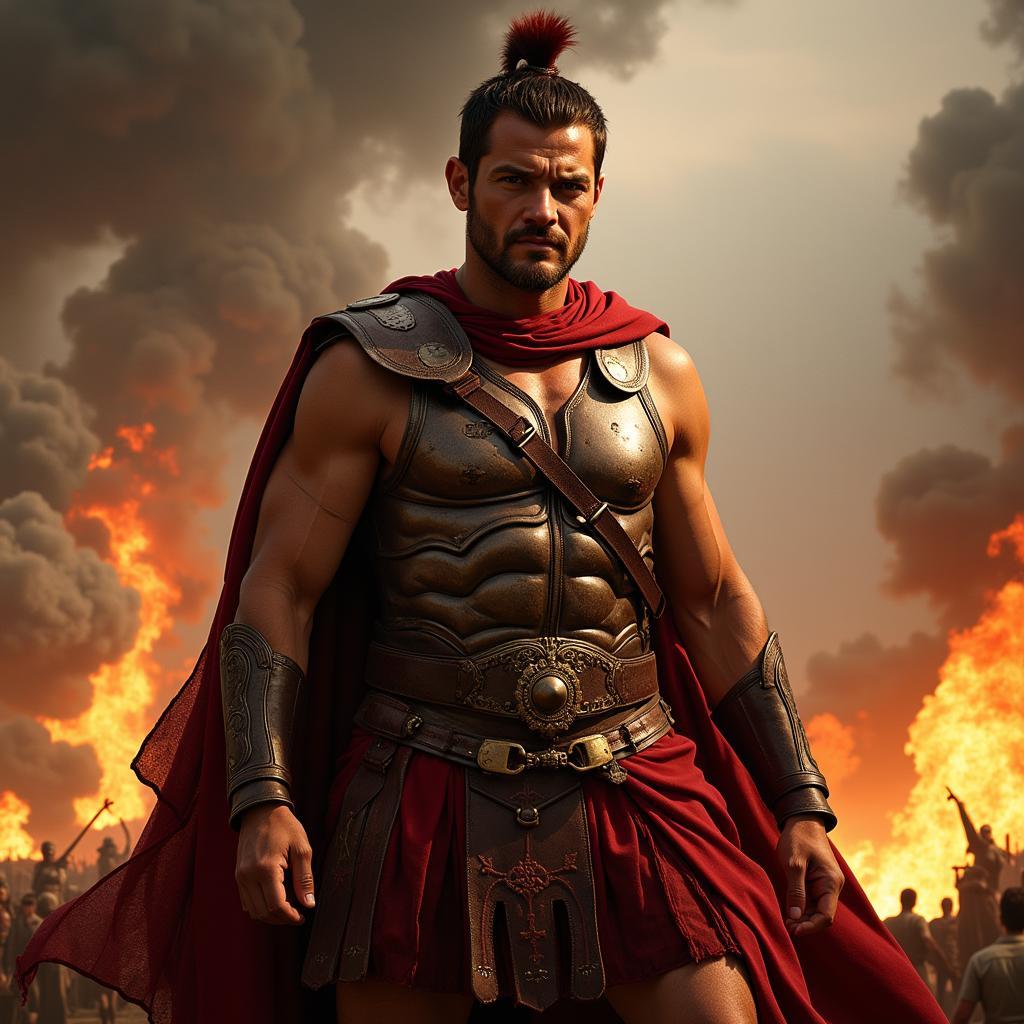The story of Spartacus, the Thracian gladiator who led a slave revolt against the Roman Republic, has captivated audiences for centuries. While the historical accuracy of the events depicted in films like “Spartacus” can be debated, the themes of rebellion, freedom, and the fight against oppression continue to resonate with viewers today.
From History Books to the Silver Screen: The Evolution of “Spartacus” in Popular Culture
The legend of Spartacus has been told and retold countless times, each iteration reflecting the social and political climate of its time. From the early literary works to the epic Hollywood blockbusters, the story has evolved, taking on new meaning and significance with each retelling.
 Roman soldiers clashing with gladiators during Spartacus's uprising
Roman soldiers clashing with gladiators during Spartacus's uprising
Why “Spartacus” Continues to Captivate Modern Audiences
There’s a reason why stories like “Spartacus” continue to resonate with viewers, even centuries after the actual events took place.
- Timeless Themes: The themes of freedom, courage, and resistance against tyranny are universal and timeless, holding as much relevance today as they did centuries ago.
- Compelling Characters: Spartacus, with his strength, determination, and unwavering commitment to freedom, embodies the qualities of a true hero. The supporting characters, each with their own motivations and complexities, add depth and intrigue to the narrative.
- Spectacle and Entertainment: From the gladiatorial combat to the large-scale battle sequences, “Spartacus” offers viewers a spectacle of action and adventure. The combination of historical drama and thrilling action sequences provides a captivating cinematic experience.
Exploring the Historical Context of “Spartacus”
While “Spartacus” is undoubtedly a work of fiction, it’s important to acknowledge the historical context in which the story takes place. The Roman Republic, despite its advancements in law and governance, was built on a system of slavery that brutally exploited countless individuals.
 A bustling scene of the Roman Forum during the Republic era
A bustling scene of the Roman Forum during the Republic era
The Spartacus revolt, while ultimately unsuccessful, exposed the vulnerabilities of the Roman Republic and challenged the morality of its institution of slavery. It serves as a reminder of the human cost of unchecked power and the importance of fighting for justice and equality.
The Legacy of “Spartacus”: A Story That Continues to Inspire
The enduring popularity of “Spartacus” speaks to the power of storytelling and its ability to transcend time and cultural boundaries. The story reminds us that even the most marginalized and oppressed can rise up and fight for their freedom.
“The story of Spartacus is a testament to the human spirit’s indomitable will to break free from oppression. It’s a story that continues to resonate with audiences because it reminds us that we all have the potential to fight for what we believe in, no matter how insurmountable the odds may seem,” says Dr. Amelia Reynolds, a historian specializing in ancient Rome and popular culture.
 A statue of Spartacus, standing defiantly with a sword raised high
A statue of Spartacus, standing defiantly with a sword raised high
The story of Spartacus serves as a timeless reminder of the importance of fighting for what is right and the enduring power of the human spirit in the face of adversity.

